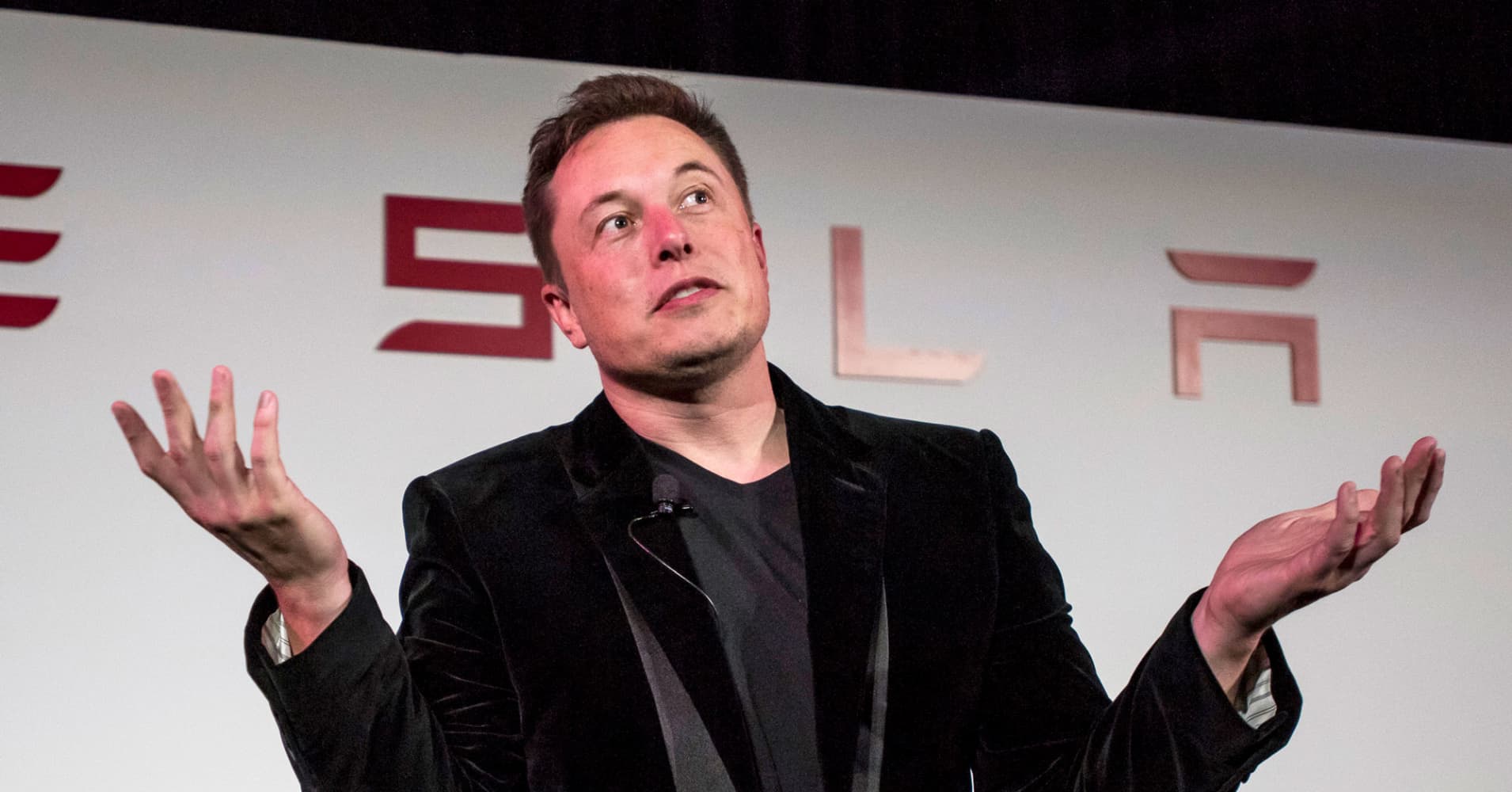 |
| David Paul Morris | Bloomberg | Getty Images |
The controversy stems from Musk's tweet on August 7 that he would take Tesla private at $420 per stock, with funding for the buyout already secured; let's explore what that really means. A public company is one that allows members of the public or other investors to buy and hold stock in the company, potentially leading to profits for those owners, as is the status quo for most companies such as Tesla. To make Tesla private, the company would announce a certain date on which they would buy back all the stock that was owned by the public, making it "private" because Tesla alone would possess stock in themselves. Of course, given the millions of shares out there for Tesla, buying them back would be a massive financial undertaking, but by tweeting "funding secured," Musk made it appear as though this was a legitimate possibility. This would lead to increases in the price of a stock because people would want to possess the stock given that Tesla would buy it back at $420 when, as of August 6 (the day before the tweet), the stock price was $341.99 (Google Finance). However, the SEC investigation determined that Musk did NOT have any funding to back up his claim, meaning he falsely manipulated stockholders into selling their shares to raise stock prices and therefore the company's value.
According to Musk, there were discussions with the Saudi Arabia Sovereign Wealth Fund that bought a 5% stake in the company worth between $1.9 billion and $3.2 billion (CNBC). Perhaps because of this, Musk considered privatization reasonable, but reports revealed that he had not had any discussion with other advisors before tweeting. Given Musk's recent appearance in the news for smoking marijuana during an interview, my first thoughts were that he was simply making a joke about that moment by setting the stock price at $420, a reference to the date 4/20 which is iconic for being "Weed Day." Nevertheless, as a very, very, very, very casual economic prediction, I would not see Tesla being impacted long-term by these events. Although it has garnered some negative publicity around the face of the company, I do believe that this has not affected the actual company's goals or production in any meaningful way, so despite the 11% drop in stock price, Tesla will be fine (Google Finance).
Interestingly, Musk on Saturday reached an agreement with the SEC despite neither admitting or deny his accusations. As a part of this agreement, he will be allowed to still serve as CEO for Tesla, but can not hold his role as chairman nor run for a position again for 3 years (Wattles, CNN). Furthermore, Musk himself will also face a $20 million fine alongside an additional $20 million penalty levied upon Tesla. Although a Department of Justice investigation was also begun into Musk's activities, it is expected that the SEC prosecution will suffice as punishment and "[mitigate] the DOJ's incentive to act" (Wattles, CNN).
For some professional analysis on potential reasons why Tesla may have wanted to go private, check out this article from CNBC.
Sources:
2 comments:
Lesson learned - be careful of what you say on the internet, because there are people who won't take it the way you intended it to be. This is not the first time Musk has said something inappropriate; during the Thailand cave incident Musk's idea to build a submarine to save the trapped children was rejected, which led Musk to accuse the rescue diver, calling him a "pedo guy." Shortly after that tweet, Tesla's share price dropped 4%.
Musk has been blaming his exhaustion for his erratic social media behavior, but surely he can't be so exhausted to the point that he can't even restrain himself from making a controversial and explosive tweet...
Fortune: "Elon Musk Revives Vern Unsworth 'Pedo' Tweets Amid Concerns Over Erratic Twitter Posts"
Misleading investors is not acceptable behavior, and the SEC has acted appropriately with Elon Musk. Social media has amplified the influence of public personalities like Musk, and people who now are able to wield such influence have been rightly made aware that they cannot abuse this control to their own benefit. Unfortunately our society has no set mechanism to combat social media giants from misleading their followers, and the SEC only had grounds to intervene because this case dealt particularly with stock exchange. However, by exposing and punishing those who can be persecuted, the public should be made better aware of the danger of false information coming across the internet from individuals careful enough to avoid legal repercussions.
Post a Comment